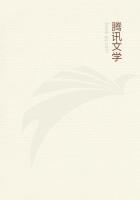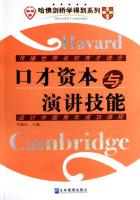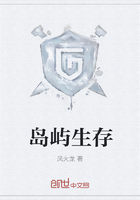At these words, a servant handed Lady Lochleven bread and salt on a silver salver, while the old steward, who, in the absence of William Douglas, fulfilled the duties of carver, served to her on a plate of the same metal a morsel from each of the dishes that had been brought; then, this transaction ended "So the queen will not appear to-day?" Lady Lochleven inquired.
"It is her Majesty's resolve," replied Mary Seyton.
"Our presence is then needless," said the old lady; "but in any case the table is served, and if her grace should have need of anything else, she would have but to name it."
With these words, Lady Lochleven, with the same stiffness and the same dignity with which she had come, withdrew, followed by her four servants and her steward.
As Lady Lochleven had foreseen, the queen, yielding to the entreaties of Mary Seyton, came out of her room at last, towards eight o'clock in the evening, sat down to table, and, served by the only maid of honour left her, ate a little; then, getting up, she went to the window.
It was one of those magnificent summer evenings on which the whole of nature seems ****** holiday: the sky was studded with stars, which were reflected in the lake, and in their midst, like a more fiery star, the flame of the chafing-dish shone, burning at the stern of a little boat: the queen, by the gleam of the light it shed, perceived George Douglas and Little Douglas, who were fishing. However great her wish to profit by this fine evening to breathe the pure night air, the sight of this young man who had so grossly insulted her this very day made such a keen impression on her that she shut her window directly, and, retiring into her room, went to bed, and made her companion in captivity read several prayers aloud; then, not being able to sleep, so greatly was she agitated, she rose, and throwing on a mantle went again to the window the boat had disappeared.
Mary spent part of the night gazing into the immensity of the heavens, or into the depths of the lake; but in spite of the nature of the thoughts agitating her, she none the less found very great physical alleviation in contact with this pure air and in contemplation of this peaceful and silent night: thus she awoke next day calmer and more resigned. Unfortunately, the sight of Lady Lochleven, who presented herself at breakfast-time, to fulfil her duties as taster, brought back her irritability. Perhaps, however, things would have gone on smoothly if Lady Lochleven, instead of remaining standing by the sideboard, had withdrawn after having tasted the various dishes of the courses; but this insisting on remaining throughout the meal, which was at bottom a mark of respect, seemed to the queen unbearable tyranny.
"Darling," said she, speaking to Mary Seyton, "have you already forgotten that our good hostess complained yesterday of the fatigue she felt inn standing? Bring her, then, one of the two stools which compose our royal furniture, and take care that it is not the one with the leg broken". "If the furniture of Lochleven Castle is in such bad condition, madam," the old lady replied, "it is the fault of the kings of Scotland: the poor Douglases for nearly a century have had such a small part of their sovereigns' favour, that they have not been able to keep up the splendour of their ancestors to the level of that of private individuals, and because there was in Scotland a certain musician, as I am informed, who spent their income for a whole year in one month."
"Those who know how to take so well, my lady," the queen answered, "have no need of being given to: it seems to me the Douglases have lost nothing by waiting, and there is not a younger son of this noble family who might not aspire to the highest alliances; it is truly vexatious that our sister the queen of England has taken a vow of virginity; as is stated."
"Or rather," interrupted Lady Lochleven, "that the Queen of Scotland is not a widow by her third husband. But," continued the old lady, pretending to recollect herself, "I do not say that to reproach your grace. Catholics look upon marriage as a sacrament, and on this head receive it as often as they can."
"This, then," returned Mary, "is the difference between them and the Huguenots; for they, not having the same respect for it, think it is allowed them to dispense with it in certain circumstances."
At this terrible sarca** Lady Lochleven took a step towards Mary Stuart, holding in her hand the knife which she had just been using to cut off a piece of meat brought her to taste; but the queen rose up with so great a calm and with such majesty, that either from involuntary respect or shame of her first impulse, she let fall the weapon she was holding, and not finding anything sufficiently strong in reply to express her feelings, she signed to the servants to follow her, and went out of the apartment with all the dignity that anger permitted her to summon to her aid.
Scarcely had Lady Lochleven left the room than the queen sat down again, joyful and triumphant at the victory she had just gained, and ate with a better appetite than she had yet done since she was a prisoner, while Mary Seyton deplored in a low tone and with all possible respect this fatal gift of repartee that Mary had received, and which, with her beauty, was one of the causes of all her misfortunes; but the queen did nothing but laugh at all her observations, saying she was curious to see the figure her good hostess would cut at dinnertime.
After breakfast, the queen went down into the garden: her satisfied pride had restored some of her cheerfulness, so much so that, seeing, while crossing the hall, a mandolin lying forgotten on a chair, she told Mary Seyton to take it, to see, she said, if she could recall her old talent. In reality the queen was one of the best musicians of the time, and played admirably, says Brantome, on the lute and viol d'amour, an instrument much resembling the mandolin.
Mary Seyton obeyed.















